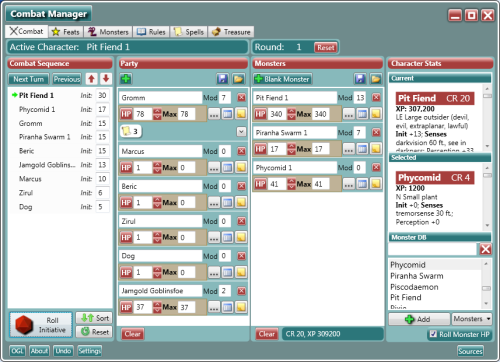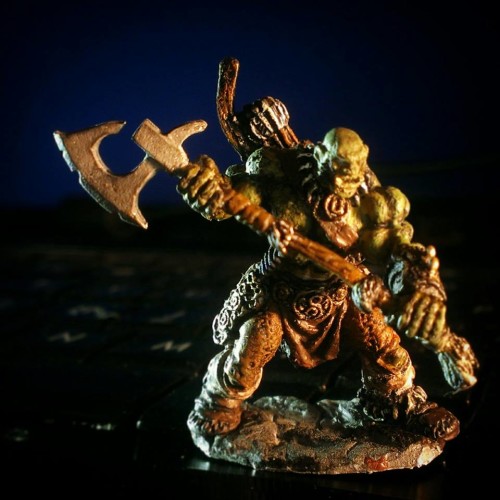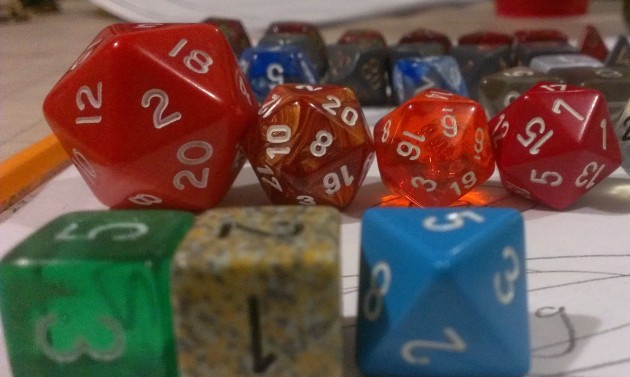Role Playing Games. They have been a part of my life for well over two decades. Before I ever even touched a d20, I was enthralled by the high fantasy of the Dragonlance novels and captured by the interactive world of SSI games like Eye of the Beholder and Pools of Radiance. Even before that, it was my friends and I in our Catholic elementary school playground. My friend, Jay, would weave tales of a world filled with puzzles, traps, golden bears with ruby eyes, and androgynous big bads. The rest of us would listen intently to the story, so we could tell our story teller what we would be doing next. We all had assigned characters. I was a Lizardman, like in my favorite arcade game at the time, Magic Sword. I wielded the infamous Sword of Mainten, and was on a quest to defeat the evil Everlast and regain my humanity.
Back then, it was just playing directed make believe, or as I thought of it, real-life Choose Your Own Adventure… which, I suppose, in reality is just living life. It wasn’t until I started playing D&D 2.5 Edition in high school, when I realized what we had be doing. Jay was running a game. He created the world and told us how it reacted to our in-game actions. He was our Dungeon Master (DM), we were his Player Characters (PCs), and despite the fact that we had no idea what a polyhedral was, we were role-playing.

Then, like now, despite a myriad of different combat and skillcheck systems, what stays constant and most important, is a good story. Good storytelling. That’s what I love about taking part in a campaign. That’s what really sucks me into the make-believe world.
With all this talk of RPGs playing a big role in my formative years, one would think I’d have tried my hand at becoming the storyteller at some point, right? Maybe? At least once?
Nope.
That all changed a few weeks ago while playing with my current Pathfinder group. Due to the episodic nature of the campaign, which you can read about at You’re in a Tavern, our PC group rotates. Instead of each session being part of a long campaign, the party has a choice of a few contracts (quests) that may or may not affect the long overarching story. Not everyone can make it all the time, but there are some that can make it every session. These people, naturally, level up quicker than those that are absent. So, when one of us gets too far ahead of the rest of the party in XP, then it’s our time to sit out a session as PC and take up the mantle of DM from our main DM, Edren. And that’s how it came about, my first time behind the DM screen.
Perhaps it’s a bit odd, but I was a tad nervous.
Why, though?
Well, I feel like I had my ability to tell a story, paint mental imagery of a world, and role-play situations set… especially after all the improv I’ve been doing these past 8 years. It’s just a different application, right? So, I was fine there. What I wasn’t so confident about, though, is my knowledge of the rules.
What DC do I need to make them roll?
What’s the rule for the duration/casting time of that Call Lightning spell? Is it a full round action?
Does firing from a threatened square provoke an attack of opportunity?
How do I figure out random loot for that monster?
How many times can I ask them to roll Perception?
In particular, I was frightened to death of running combat. Look, I’m not the strongest when it comes to attention span. In fact, if “Attention” were an ability score, I would probably have rolled three 1’s and a 3 (drop the lowest roll, of course). In fact, I was so wary of running combat, keeping initiative and HP straight in particular, that I scoured the annals of the information superhighway for something that could help me and found Combat Manager. Thank you, Combat Manager. You’re the snazziest.

I felt somewhat prepared. I had Combat Manager, I had a complete adventure/contract prepared, and two alternates loosely outlined, complete with mid-quest and random encounters.
There was one piece of advice that Edren gave me, though, and it went along of the lines of, “The PCs will never do what you want them to.”
And of course, my PCs did a whole bunch of stuff and asked questions that completely caught me off-balance.
Shit, what rules were we using for price haggling, again?
Oh, sure you can take that contract (that I halfway outlined and hoped to Ao you wouldn’t take).
You, uh… see wolf tracks leading away from town. Yeah… uh, sure, they’re bigger than normal. ::types furiously looking up Dire Wolf::
Ah, yeah, oh haha you have Speak with Animals. Good. (Shit!)
Seriously, I hadn’t bullshitted that much in a 6-hour span since my last 9-5 job. I’m out of practice, and as such, I dropped the flow of the session a few times. There were lulls here and there as I had to double check things. That can really kill the morale of a session, perhaps as much as a complete party wipe.
The lesson here: An improv rule: Choose to Know. If you don’t know something, make up something that sounds fair to both parties. The priority isn’t adhering to a rule structure, it’s moving story forward and making sure everyone is having fun.
One thing I totally didn’t expect, the CR rules for creating encounters in Pathfinder were way too lenient, especially for an experienced party and players. Everyone in the group has played table top RPGs for at least 15 and in some cases, 20 years. So they know what they’re doing. Theoretically, according to the CR chart, I had set up a “Challenging” encounter. In practice, though, not so much. I found myself fudging HP and damage numbers just so the big bad at the end of the dungeon didn’t go out like a one-hit wonder, because I wanted the PCs to feel like they had earned something. Whoa, yeah I totalled just copped to that.
The lesson here: Don’t be afraid to throw something really difficult at your PCs. They will find a way through. And if they don’t, that’s what you’re there for… to provide plot armor.
To balance that out, though, something interesting and kinda cool happened while the party took on their second contract of the session. I had set up that a Hill Giant exile was living on the outskirts of town, where there were several reports of missing livestock. The townspeople, taking a hit to their livelihood, took out a contract on the giant to stop the loss of livestock. The party discovers that the giant is not responsible for the missing animals when they run into a pack of dire wolves living nearby. Instead of taking on the wolves head on, the group’s shaman communes with the pack, and informs them of the situation. The group brokers peace between the three parties: the wolves, the giant, and the townspeople, and everyone goes home happy and unscathed.
The drawback to this type of quest, though is that players have concentrated solely on combat feats/skills can feel a bit left out. Perhaps I could have thrown in a “random” encounter just to keep things interesting.
The lesson here: Not every adventure/session has to culminate in a knee-deep bloodbath. A sense of accomplishment can be gained through overcoming obstacles in different ways.
Overall, DM/GMing was an interesting experience. Despite my initial jitters, I think I did okay for my first time out. Would I consider doing it again? Sure! Are there things I would change? Definitely. Seriously though, there would have been no other way for me to find out what needed to work on other than just throwing myself into the fire.
The lesson here: DMing’s not so bad! You didn’t have to be afraid of it, Agent Earl.
Now if only I could convince myself of that with regards to real life stuff. Haha.



